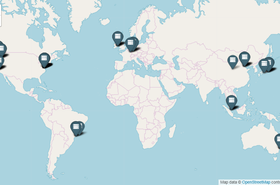Microsoft has launched two Azure Government Secret regions, now in private preview and pending accreditation.
The two data centers, some 500 miles apart, are designed with classified government workloads in mind, and operate on secure, native connections to classified networks.
The company also said that all of its Azure Government regions now support DoD Impact Level 5 (IL5) data.
Shh, it's a secret
In its announcement, Microsoft also said that there was an edge element to the service, but did not provide specifics. “Microsoft has edge capabilities available now and planned for Azure Government Secret that are just game changers,” Kim Aftergood, MD of Accenture Federal Services, said.
Lily Kim, Azure Global GM, added: "These dedicated data center regions are built with additional controls to meet the regulatory and compliance requirements for DoD Impact Level 6 (IL6) and Director of National Intelligence (DNI) Intelligence Community Directive (ICD 503) accreditation."
IL6 compliance is crucial for JEDI, a cloud contract for the Department of Defense which could cost $10bn and run for up to 10 years, and which was originally specified in a way which could only be met by Amazon Web Services (AWS).
JEDI was delayed by legal complaints from Oracle, and Microsoft used this time to make Azure meet the "minimum requirements" for the contract. With now only two providers capable of serving the controversial single-award contract, the DoD said that it will announce whether Microsoft or AWS will host the US military around mid-July.
The Government Secret regions have many other potential customers, even if Microsoft does not win the JEDI award. They meet the Director of National Intelligence (DNI) Intelligence Community Directive (ICD 503), allowing them to serve the 17 agencies that make up the US intelligence community.
Foremost among those is the CIA, which earlier this month was revealed to be considering tens of billions of dollars of cloud contracts from several providers. Currently, the foreign intelligence service's cloud needs are met by Amazon Web Services.




